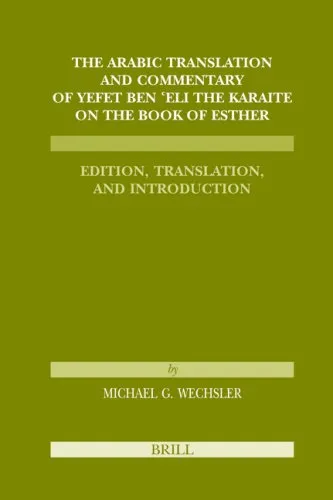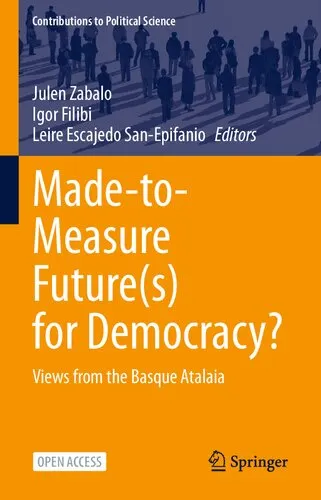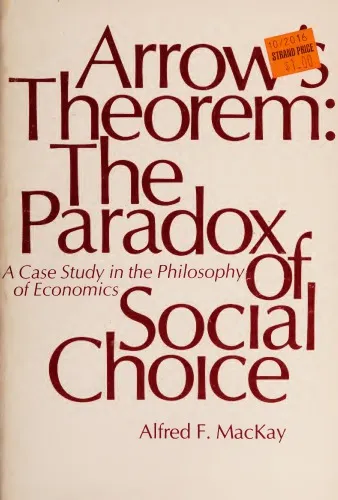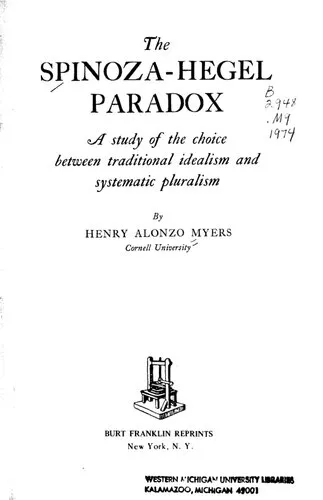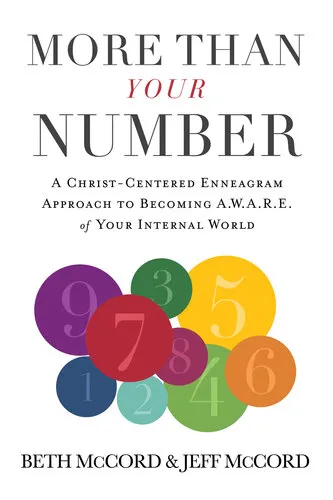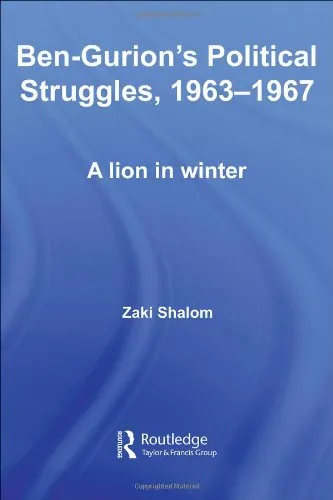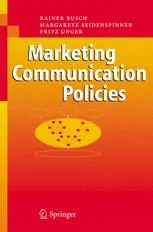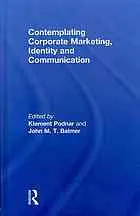The Arabic Translation and Commentary of Yefet ben 'Eli the Karaite on the Book of Esther (Etudes Sur Le Judaisme Medieval) (v. 1)
4.0
بر اساس نظر کاربران

شما میتونید سوالاتتون در باره کتاب رو از هوش مصنوعیش بعد از ورود بپرسید
هر دانلود یا پرسش از هوش مصنوعی 2 امتیاز لازم دارد، برای بدست آوردن امتیاز رایگان، به صفحه ی راهنمای امتیازات سر بزنید و یک سری کار ارزشمند انجام بدینکتاب های مرتبط:
معرفی کتاب
کتاب "The Arabic Translation and Commentary of Yefet ben 'Eli the Karaite on the Book of Esther" نوشته مایکل ج. وچسلر یکی از آثار مهم در زمینه مطالعات یهودیت قرون وسطایی است که به بررسی ترجمه و تفسیر عربی یکی از برجستهترین کتابهای یهودی یعنی کتاب استر میپردازد. در این کتاب پژوهشی دقیق و جامع ارائه شده است که نشاندهنده تعمق و تحلیل نویسنده در خصوص آثار یهفت بن الی، شخصیت برجسته قرن دهم میلادی در جامعه قرائیم، میباشد.
خلاصه جامع از کتاب
این کتاب بررسیای عمیق را از ترجمه عربی و تفسیر یهفت بن الی، یکی از شخصیتهای مهم و تاثیرگذار در جامعه قرائیم، روی کتاب استر ارائه میدهد. ترجمه و تفسیر یهفت با دقت خاصی به موضوعات و روایتهای کتاب استر میپردازد و با رویکردی متمایز، محتویات این متن مقدس را تحلیل میکند. کار یهفت نه تنها به علت ترجمه دقیقش، بلکه به دلیل تفاسیر و بینشهای منحصر به فردش در خصوص شخصیتها و وقایع کتاب استر، از اهمیت ویژهای برخوردار است.
نکات کلیدی
- ترجمه عربی یهودی و تحلیل دقیق کتاب استر در کانون توجه قرار دارد که باعث میشود این اثر به عنوان یک منبع حیاتی برای پژوهشگران تاریخی و زبان شناسی شناخته شود.
- یهفت بن الی با دیدگاههای فلسفی و تفسیرهای منحصربهفردش بر جامعه قرائیم تأثیر شگرفی گذاشته است.
- کتاب همچنین به بررسی تطابقات و تناقضات مختلف میان تفاسیر یهفت و سایر مفسران کتاب مقدس میپردازد و در نهایت دیدگاههای متمایز قرائیمی را در خصوص این کتاب ارائه میدهد.
نقلقولهای مشهور از کتاب
اهمیت ترجمه و تفسیر مناسب آثار مقدس نمیتواند هرگز نادیده گرفته شود؛ زیرا درک عمیقتر از مفاهیم میتواند گشودگی بیشتری برای اکتشافات معنوی و تاریخی فراهم کند.
تاریخ تکرار پذیر نیست، اما ما را به سوی فهم بهتری از گذشته و درسآموزی از آن رهنمون میسازد.
چرا این کتاب اهمیت دارد؟
کتاب "The Arabic Translation and Commentary of Yefet ben 'Eli the Karaite on the Book of Esther" نه تنها یک مطالعه تاریخی ارزشمند است، بلکه به سبب تحلیلهای دقیق و منحصربهفرد در خصوص کتاب استر، یک منبع کلیدی برای پژوهشگران مطالعات یهودیت به شمار میآید. این اثر با بررسی تطابقات و تفاسیر یهفت و تأثیرات آن در توسعه اندیشههای قرائیمی، به روشن شدن مسیرهای فکری و اعتقادی جامعه یهودی در قرون وسطی کمک میکند. بخصوص برای کسانی که به دنبال فهم عمیقتر از تأثیر فرهنگ و زبان عربی بر تفاسیر یهودی هستند، این کتاب ابزاری بینظیر است.
Welcome to an illuminating journey through one of the seminal works of Karaite biblical exegesis. "The Arabic Translation and Commentary of Yefet ben 'Eli the Karaite on the Book of Esther" is a meticulously researched volume that delves deeply into both the historical and theological aspects of Yefet ben 'Eli's contributions, providing a thorough and comprehensive understanding of his work and its significance within the broader context of Judaic studies.
Detailed Summary of the Book
Yefet ben 'Eli, a prominent figure among the Karaites, was renowned for his insightful commentaries and translations of the Hebrew Bible into Arabic during the 10th century. His work on the Book of Esther stands as a notable example of his scholarly achievements. This book presents not only his Arabic translation but also his extensive commentary on one of the most enigmatic and historically rich texts of the biblical canon.
The volume explores Yefet's linguistic precision in translating Hebrew scriptures into eloquent and accessible Arabic. It illustrates how Yefet balanced fidelity to the original text with the need for cultural and linguistic adaptation, allowing a broader audience to engage with the biblical narratives. Yefet's commentary offers a unique lens through which to view the socio-political and religious dynamics of his time, reflecting his deep commitment to the Karaite ideology that stressed scripture and reason over rabbinic tradition.
This scholarly work is an invaluable resource, providing critical annotations and contextual insights. The editor meticulously presents Yefet's interpretations, comparing them with Rabbinic exegesis, thus shedding light on the distinct theological perspectives between these Jewish communities. The inclusion of original Arabic text alongside English translations allows readers to appreciate the linguistic nuances and cultural subtleties embedded in Yefet's work.
Key Takeaways
Through an exploration of Yefet ben 'Eli's commentary, several key takeaways emerge:
- Understanding Karaite Thought: The book provides a deep dive into Karaite ideology, emphasizing scripture's primary authority over oral traditions. Yefet's work exemplifies Karaite hermeneutics that valued personal inquiry and rational interpretation.
- Historical Context: The translation and commentary give readers insight into the historical and cultural milieu of the Jewish communities in the Islamic world during the medieval period.
- Linguistic Acumen: Yefet's approach exemplifies a masterful blend of translation fidelity and linguistic adaptation, ensuring the Hebrew scriptures' accessibility and relevance for Arabic-speaking audiences.
- Inter-communal Dialogue: Yefet’s commentary illustrates theological and interpretive dialogues between Rabbinic and Karaite Judaism, offering a rich tapestry of interpretations that inform contemporary scholarship.
Famous Quotes from the Book
Yefet ben 'Eli's work is replete with insightful reflections that resonate with his deep scriptural understanding. While direct quotes from the original text are complex due to the nature of translation, the commentary often reflects themes such as the sovereignty of God, human agency, and the nuanced interplay between fate and divine intervention, particularly as illustrated in the narrative of Esther.
Why This Book Matters
"The Arabic Translation and Commentary of Yefet ben 'Eli the Karaite on the Book of Esther" is an essential contribution to the academic study of biblical exegesis and medieval Jewish thought. It stands as a testament to the vibrant intellectual traditions within Jewish history that continue to inform contemporary theological and historical scholarship. The book is a critical tool for scholars of Judaic studies, offering insights into the diverse interpretations and cultural exchanges within the Jewish diaspora and the Islamic world.
The work is not just of academic interest; it also serves as a reminder of the rich legacy of intercultural dialogue. Yefet's commentary exemplifies the dynamic engagement with scripture that transcends linguistic and cultural boundaries, fostering a deeper understanding of historical Jewish philosophical and theological developments.
دانلود رایگان مستقیم
شما میتونید سوالاتتون در باره کتاب رو از هوش مصنوعیش بعد از ورود بپرسید
دسترسی به کتابها از طریق پلتفرمهای قانونی و کتابخانههای عمومی نه تنها از حقوق نویسندگان و ناشران حمایت میکند، بلکه به پایداری فرهنگ کتابخوانی نیز کمک میرساند. پیش از دانلود، لحظهای به بررسی این گزینهها فکر کنید.
این کتاب رو در پلتفرم های دیگه ببینید
WorldCat به شما کمک میکنه تا کتاب ها رو در کتابخانه های سراسر دنیا پیدا کنید
امتیازها، نظرات تخصصی و صحبت ها درباره کتاب را در Goodreads ببینید
کتابهای کمیاب یا دست دوم را در AbeBooks پیدا کنید و بخرید
1205
بازدید4.0
امتیاز0
نظر98%
رضایتنظرات:
4.0
بر اساس 0 نظر کاربران
Questions & Answers
Ask questions about this book or help others by answering
No questions yet. Be the first to ask!
